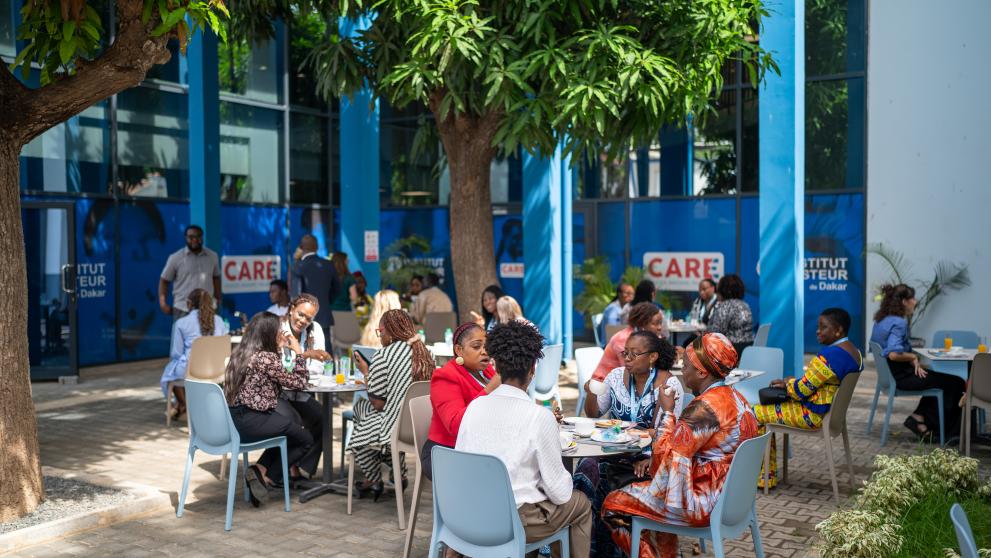
Africa is facing increasing dangers from biological incidents and the risk of pandemics. It is therefore essential to strengthen health systems and develop policies that promote greater responsibility in the field of biosafety and biosecurity.
With their crucial engagement in risk mitigation initiatives, women professionals are calling for inclusive efforts and structured approaches to counter biological risks effectively.
African Women Leaders – Frontiers in Biosecurity and Biosafety to prevent the next pandemics
Aware of this need, the European Union supported within the framework of the EU CBRN Centres of Excellence a 4-day course in Dakar, Senegal, with the aim of strengthening ties between African women professionals in the biosafety and biosecurity field.
Organised by the African Epidemic Resilience Centre (CARE) at the Pasteur Institute in Dakar, from 16 to 19 September 2024, the event ‘African Women Leaders – Frontiers in Biosecurity and Biosafety to prevent the next pandemics’ brought together 21 women professionals from 15 countries on the African continent.
“Health is at the heart of the EU's actions”, stressed at the event Jean-Marc Pisani, the European Union's ambassador to Senegal. “This is done through CARE, which is an epidemic prevention centre, and through support to encourage the production of natural vaccines. In both these initiatives, women still have a central role to play”.
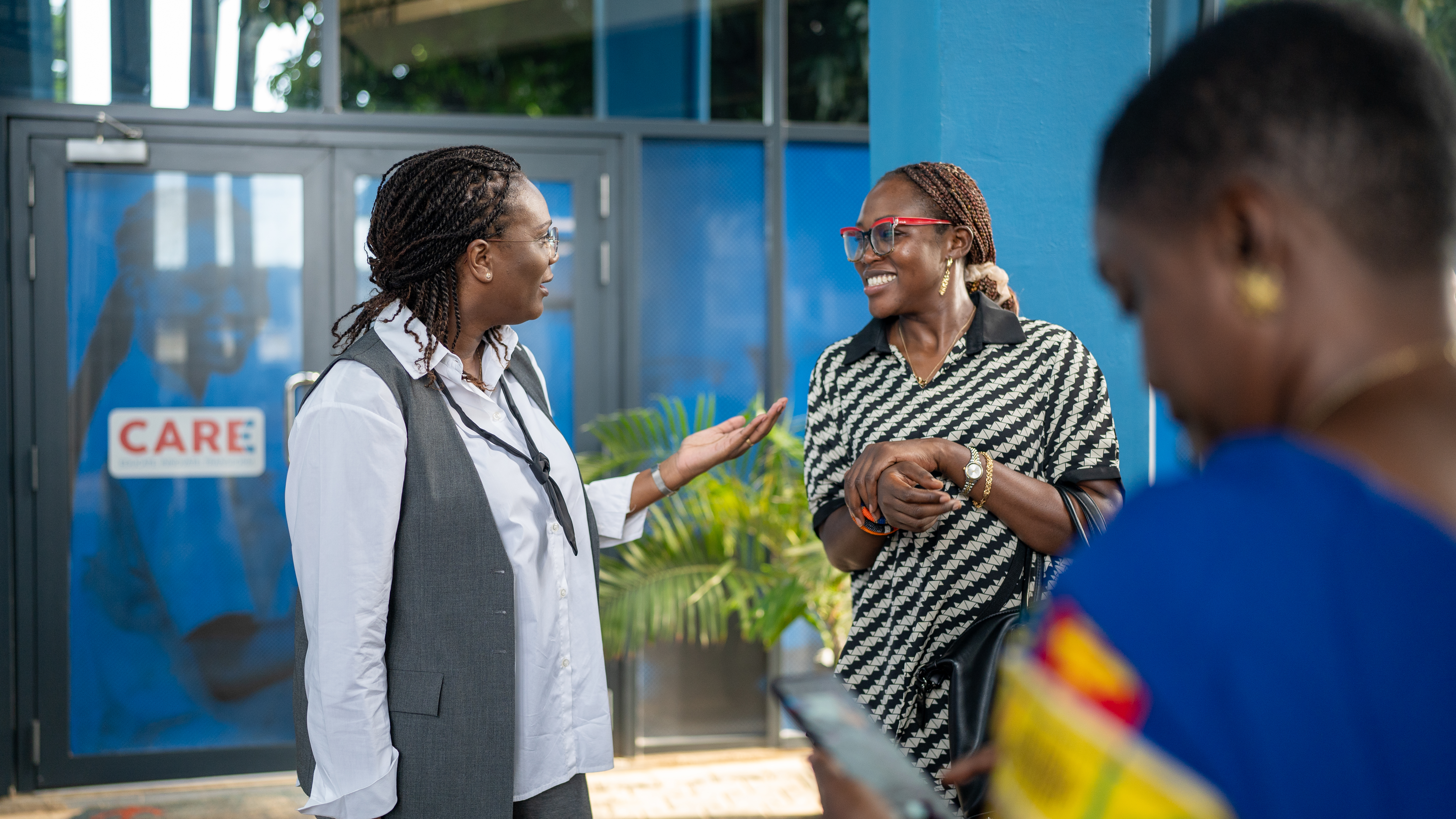
Real-life exercises to respond to real-life emergencies
At the event, participants were given lectures by experts on topics such as the approach to biosafety in Africa or biological risk management. It was an opportunity to get up to date with the latest knowledge and regulations on biosafety and biosecurity.
“This workshop has definitely improved our knowledge and understanding in this sector”, enthused Anna Jammeh, Chief Medical Officer and Epidemiologist at the Gambian Ministry of Health.
The participants were confronted with real-life exercises in the form of scenarios in which they were faced with biosafety challenges. “We didn't want it to be just a theoretical and technical workshop”, explained Isha Fatma Njai, CARE's manager, “which is why we also included a practical component”.
“This will help us make decisions when we are confronted with identical situations”, shared Yasmine Okone Nguema, a young biochemist at the University of Science and Technology in Franceville, Gabon.
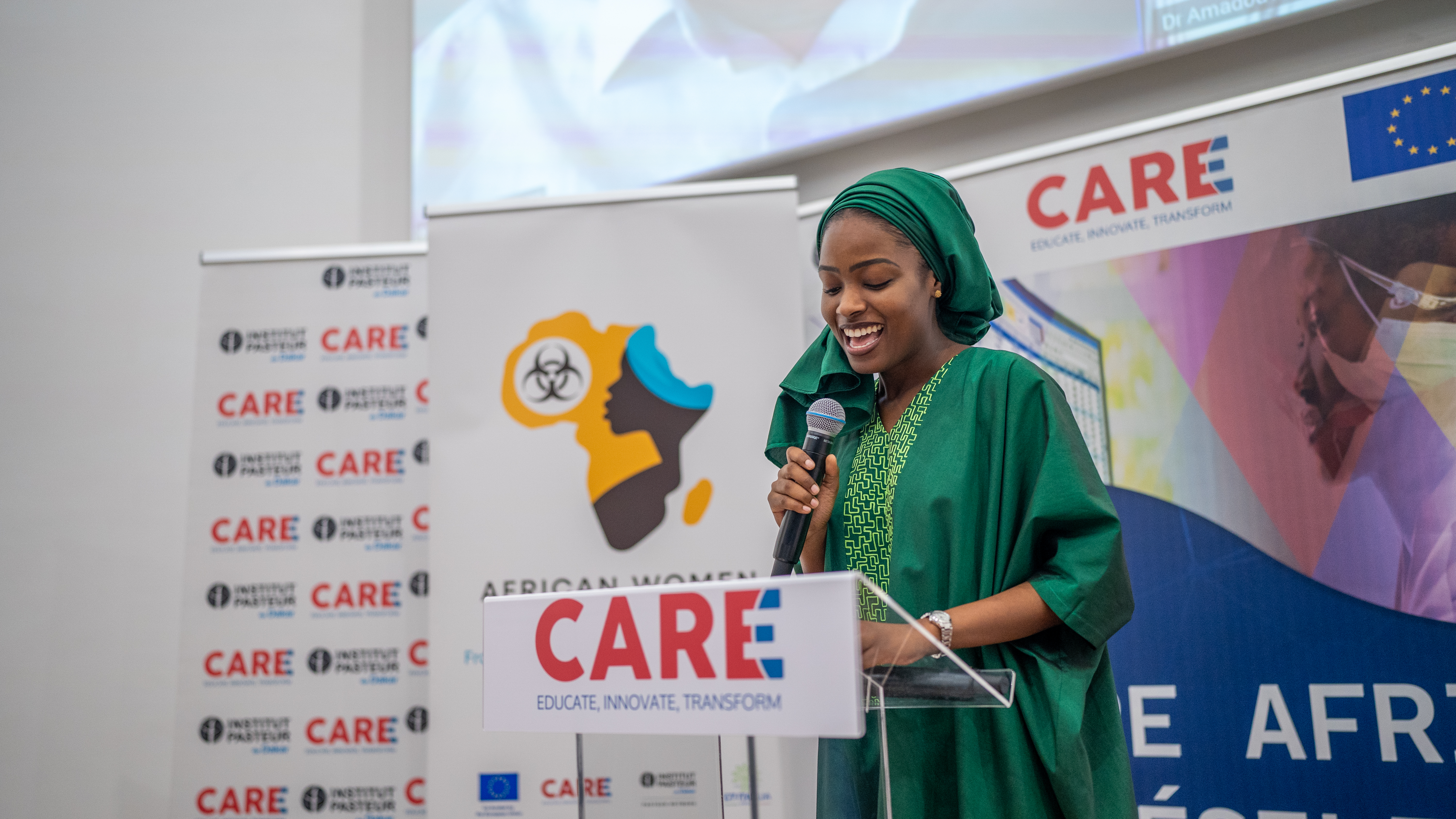
“This can have a major impact on patient care and the response to an epidemic”
The participants accompanied experts from the Pasteur Institute and Praesens CARE into the field, where they were able to see the advantages of different types of mobile laboratories, particularly the BIONEAR truck and portable diagnostic devices. “These units have been designed to enable rapid diagnosis of infectious diseases”, explained Idrissa Dieng, assistant researcher at the Pasteur Institute, on the road leading to the working-class district of Mbao, on the outskirts of Dakar.
This mobile structure can travel to the scene of an epidemic, carry out tests on the spot and obtain the results in less than two hours. “You can have all the certifications you want. But if you haven't practised them, when the time comes, you risk not doing the right thing. The exercises in this workshop take us from theory to reality in the field. This can have a major impact on patient care and the response to an epidemic”, admitted Chanceline Bilounga, a public health doctor in Cameroon.
“We need to share this knowledge we have acquired here to bring health security to our countries with our colleagues back home”, insisted Anna Jammeh. “This group of women can have a cascade effect that will improve the global network”.

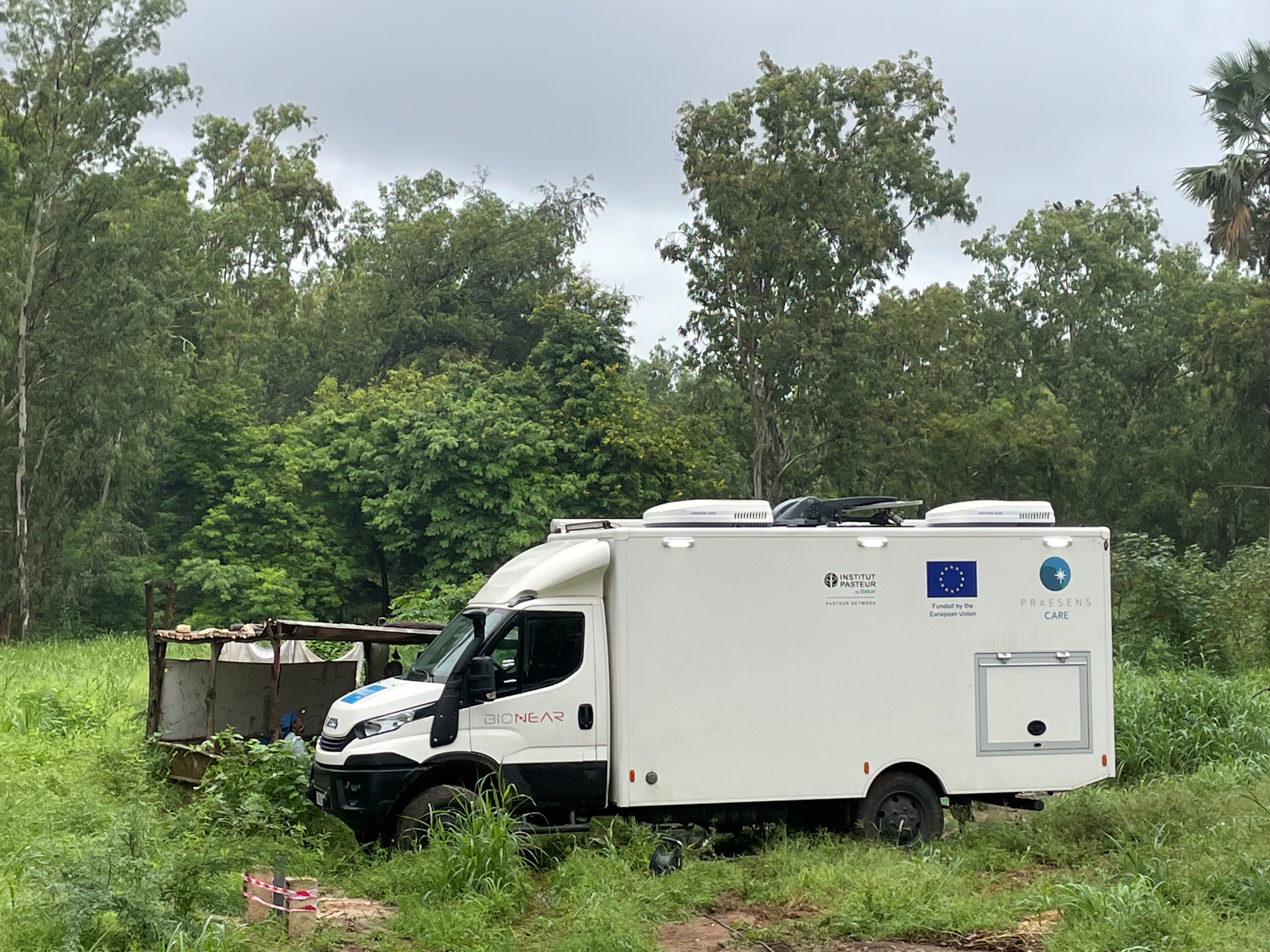
Reinforcing the central role of women in Africa
Indeed, during these four days of training, lasting professional and human links were forged between these women leaders.
“We are very proud to be supporting this programme with the EU”, says Isha Fatma Njai, “because it makes it possible for these women to work together more effectively in the field of health safety in Africa”.
Within this framework, the participants are forming a network whose aim is to ensure that women have decision-making power and leadership opportunities in the field of biosafety and biosecurity across Africa. “It's about reinforcing the central role of women in Africa”, explains Jean-Marc Pisani. “It's a message from the EU that we're counting on these women leaders to unite tomorrow and meet the major challenges that lie ahead”.
The network is also looking to the next generation to build a stronger community based on diversity and inclusion. “I want to tell young girls to dare, to express themselves and not to be afraid”, insisted Yasmine Okone Nguema, “to take inspiration from women leaders who have already shown that women are capable of excelling in the sciences, but also in all areas of activity. They are the ones who can inspire a better future for us all”.
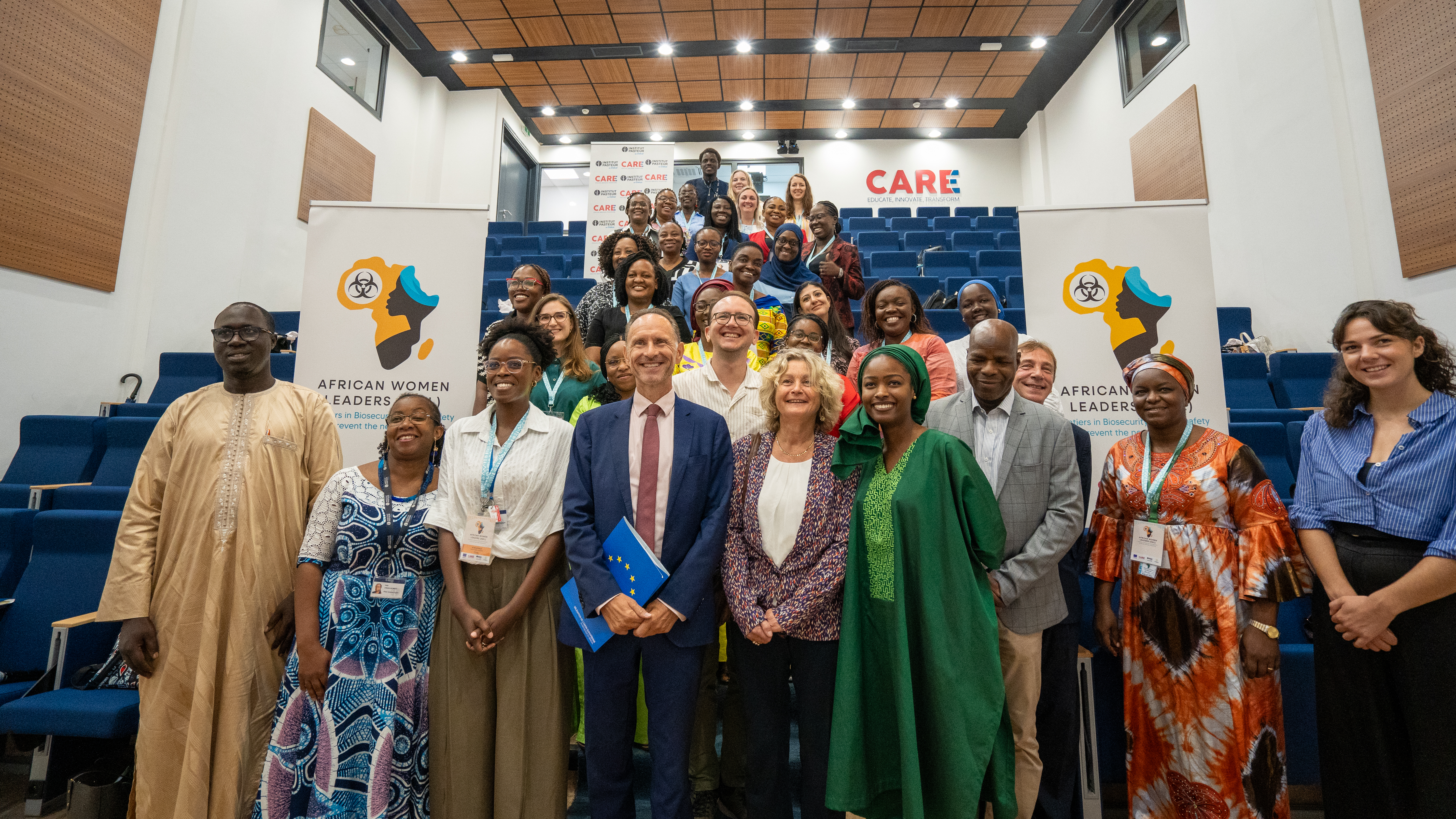
Details
- Publication date
- 23 September 2024
- Authors
- Service for Foreign Policy Instruments | Joint Research Centre
- CBRN areas
- Bio-safety/bio-security
- Crisis management
- First response
- Protection of material/facilities
- Public and infrastructure protection
- Public health impact mitigation
- Safety and security
- Waste management
- CBRN categories
- Chemical
- Biological
- CoE Region
- AAF - African Atlantic Façade
- ECA - Eastern and Central Africa
- NAS - North Africa and Sahel
